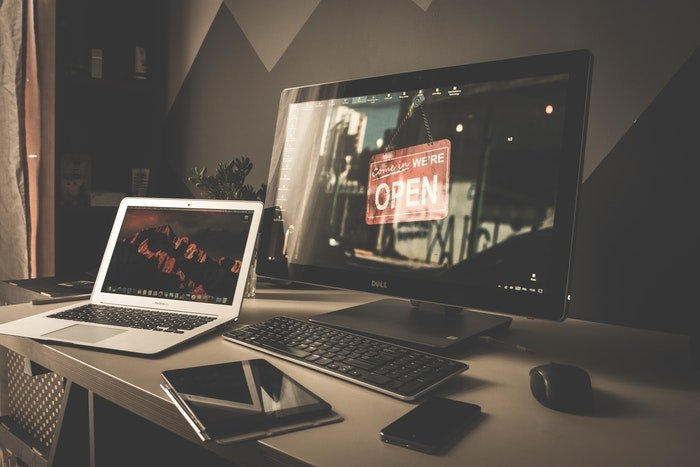When it comes to buying a computer, it’s a confusing process. There are tons of options out there, even if you have a budget. In this post, I am trying to make things simple by talking about a list of factors to consider when buying a laptop or desktop computer powered by Windows 11.

List of factors to consider when buying a computer
Keep in mind, that your budget is likely to increase by a margin of 10% to 20%, whenever you go to buy a computer. Anyway, the list of the main factors is as follows:
- Where are you going to use it?
- Desktop vs. Laptop
- HDD vs. SSD
- RAM/Memory
- Dedicated GPU
- Motherboard Features
- Processor/CPU
- Keyboard/Mouse/Touchpad
Remember, you can get a powerful machine at a lesser price if you choose a desktop over a laptop. However, it depends on the nature of your work.
1] Where are you going to use it?
I think this is the first question you need to ask yourself. Do you need to take it every day at the office? Do you need it for your kids? Are your family members going to use it along with you? How intensive is the nature of your work? Is it high, such as gaming or editing graphics files, or is it about casual browsing?
While these are many questions, they are most crucial. If it’s about casual browsing, then you can get a great PC at a lower price with great hardware.
2] Desktop vs. Laptop
Here is a rule of thumb, if its more than one or two users, then get a desktop, else a laptop should do. While Laptops offer portability, too many users can result in mishandling and damage the computer. If you are going to use the computer for long extended times, then we recommend a desktop computer for ergonomic reasons.
Two more things add to the advantages of owning a Desktop. You can easily upgrade a desktop set up and changing it every few years will be less expensive. Similarly, if you choose an all-in-one, any repair would mean taking the whole unit to the service center.
When it comes to Laptops, battery, and weight are crucial. Make a note of how long the battery lasts and how quickly it charges up. Anything with a USB Type C charging port will charge up quickly. The next in line is the weight. If you need to carry it a lot, buy a lightweight.
3] Storage: Space vs. Speed
There are two types of storage device SSD and HDD. The former is known for its speed, but it’s comparatively expensive and has a slightly shorter life, while the latter is slower, lives longer, and offers more storage capacity compared to SSD. While I have talked about how SSD can improve computer performance, but here is how you should buy.
Go Hybrid! Get a 256 to 512 GB SSD drive on which you can install Windows and applications. Since SSD offers better read-write speed, Windows can boot up in less than 10- seconds, shutdown even faster, and applications can launch and process a lot more quickly compared to HDD.
Along with the SSD, invest in a high-storage HDD, which you can use to store data, create a backup, and more. A mixed storage strategy will work better in the long term.
Read: Which is better – RAM upgrade or SSD upgrade?
4] RAM/Memory
It again depends on what kind of applications you are going to use, but make sure you get a minimum of 8 GB of DDR4 RAM at the minimum. They are fast, and any causal user would need this amount of RAM. Also, if your motherboard allows, get it in multiple of 4GB RAM instead of numerous of 8GB.
5] Dedicated GPU
Even if you do not have GPU intensive work, I would highly recommend you get to a dedicated GPU card with 4GB of RAM. It will make sure if you install any utility which works better on a dedicated GPU, it will help.
6] Motherboard Features
Windows OS has evolved a lot, and it now supports Sandbox, which needs support for virtualization. Further, getting a UEFI supported motherboard is better compared to BIOS.
Apart from these, if you plan to upgrade your PC, make sure it has expansion slots, the option to add a dedicated GPU, and more.
7] CPU/Processor
Get the latest version; make sure it has more GHz and CPU cores. The higher they are, the more they will cost. So, depending on your budget and market review, get the best you can. Decide all this, keeping in mind your budget and type of work.
8] Keyboard/Mouse/Touchpad
When you choose to buy a laptop, you need to live with whatever it comes with. If you plan to use it for a longer time, form factor and touchpad experience matter a lot. So make sure to keep that in mind. A backlit keyboard makes sense!
When it comes to Desktops, you have a plethora of choices. You can get a decent mechanical keyboard, a mouse that offers a lot of gestures may be a gaming mouse and keyboard with LED and so on.
While I have tried to cover all the aspects, there might be a few misses, and if there is, let us know in the comments. However, I believe this list of factors to consider when buying a computer should be good enough for you to make a decision. Apart from these, make sure to take peer reviews, ask people on social media, and if someone has first-hand experience, there is nothing better than that.
Read next: Health problems caused by Smartphones overuse.
Leave a Reply